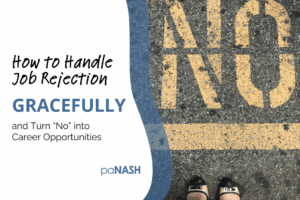|
|
With the end of another year AND another decade nearing, it’s time to get serious about your life and your career. You don’t have to have a lot of money or even a lot of time to invest in your future. But, you do need to start somewhere. There are several little things you can do to make smart investments in your life and career. These little things will add up. And by the end of the next decade and even the next year, you’ll see a BIG payoff!
Let’s break it down by various areas of your life. We’ll use the seven major areas as outlined in my Goal-Achievement Plan, a free download when you subscribe to my newsletter at www.yourpassioninlife.com. Don’t let all the following suggestions overwhelm you. Instead, just pick one or two to start with. The results you see will motivate you to make the same kind of investment in the other areas of your life. Pretty soon you’ll see an overall improvement in your life and career.
1. Spiritual investments
Getting centered spiritually, regardless of what it looks like for you, is probably the most important investment you can make in your life. Setting aside time at the beginning of each day for small habits such as prayer or meditation, reading, and journaling can get your day started off on the right foot.
Eleven years ago I started getting up an hour early each morning to do just that. I can’t even begin to describe what this has done for me, personally and even professionally. But now I can’t imagine starting my day without it. This habit is truly my daily bread. It’s helped me to make smart decisions in all the other areas of life listed below. The return on my time and emotional investment is priceless.
I encourage you to do the same. If mornings seem impossible for you, then at least commit to this habit every night before bed. Just know though, it will be harder to stay committed once you’re already tired. This is one reason why I recommend doing it in the morning. The other reason is because you’ll have the armor you’ll need to face each day’s challenges with renewed strength.
2. Investments in family
This one is sometimes hard for me to manage since my family is located far away. You may have the same situation too. Taking the time to speak to each other on the phone or via FaceTime on a regular basis (instead of just texting) can strengthen family ties.
When together in person, resist the temptation to play on your phone or on social media, especially during a meal together. Instead, put the phone away and invest your attention in your loved ones. Be fully present with them.
If the phone does come out, let it be to share some recent photos with each other and to take some new photos together, creating new memories to look back on ten years from now. Who knows what new technology will be available in ten years to let us share these photos and take new ones?!
3. Smart investments in your health
If you haven’t heard this yet, health is the new wealth. Being able to enjoy your life ten years from now will depend on your current health habits. Your bank account will also depend on your health. Will you still be able to work ten years from now based on how you’re currently treating your body?
The past ten years I’ve developed new eating and exercise habits. While the addition of these habits to my routine has been incremental, I’ve already experienced numerous benefits. I can’t wait to see how my habits and results improve in the coming years.
In addition to investing time in regular exercise, it’s good to invest a little more money in healthier foods. Although healthier foods still cost more than unhealthy foods, think of the money you’ll save in doctor bills in the future!
You may have seen the story on Facebook about the elderly woman who was able to reverse her dementia by eating foods like blueberries and walnuts. She’s not Super Woman, but what she’s eating are super foods! Super foods are those foods found in nature containing more nutrition than any other foods.
The top ten super foods are avocados, blueberries, broccoli, eggs, garlic, honey, lentils, quinoa, spinach, and walnuts. They’re best for you when eaten with other super foods. Every morning I need 30 grams of protein so I don’t get hungry again too soon. I’m usually able to incorporate three to four super foods in my high-protein breakfast.
In addition, there are several foods that can lower your cholesterol. They include fish, olive oil, whole grains, berries, avocados, beans, nuts, spinach, red wine (in moderation), vegetables, citrus fruits, soy, green and black teas, and (my favorite) dark chocolate. I also get at least four of these in my high-protein breakfast.
Try incorporating some of your own favorite foods from the items above in your diet to go along with some fun form of exercise you enjoy most.
4. Smart investments in your career
Without making the above smart investments in your life, it will be difficult to be successful in your career. Career success also depends on your ability to sharpen and update your current skills while learning new skills. Doing so requires an investment of time, and sometimes money.
If your current employer pays for professional development or continuing education, take advantage of it! But go a step further and seek out additional educational and personal growth opportunities that can prepare you for a promotion or possible future career change. You can find these opportunities in local continuing ed programs and online, most of which are typically very affordable. Having this additional training can give you leverage when starting your own business, asking for a raise, or negotiating a salary offer for a new job.
Speaking of salary negotiations, career success also depends on how well you can negotiate a fair salary. This is something I teach my clients how to do tactfully.
Let’s assume whatever the salary offer is, you’ll get at least the average cost-of-living raise each year, which is typically 2% to 3%. Let’s say you get an initial offer of $80,000 and accept it without countering. Do you realize in five years, you will have lost out on as much as over $27,000 in salary increases by not asking for just $5,000 more? (An additional $5,000 is the most you can usually ask for without the hiring manager having to seek additional approval.) Raises compound just like financial investments do!
5. Financially smart investments
If you’re able to negotiate a higher salary, then you’ll have more money to invest now which will grow over time. But financial investments don’t just include putting your money into a 401K or into the stock market. They also include learning how to be more financially responsible. This begins with investing the time to creating a budget, monitoring your spending habits, figuring out necessary spending cuts, saving for an emergency fund, taking the time to pay off debts, adding to your emergency fund, and learning more about smart investing.
This may not sound like fun and may even sound difficult depending on your current financial situation. Taken all together, it does seem overwhelming and impossible. But when you break it down into baby steps as financial expert Dave Ramsey teaches in his book The Total Money Makeover, it not only becomes easy but also motivating!
While I don’t subscribe to everything Ramsey teaches, I will say his baby step method to financial freedom does work! By following this method, I’m on track to have my car paid off a year early. And this feels good! It’s motivated me to set bigger financial goals like contributing more to my mutual fund and IRA and giving more to causes meaningful to me.
You can start small today by making payments on your smallest debt and then using the snowball approach Ramsey teaches to tackling your remaining debt. As a result your debt will be paid off faster than you think!
6. Socially smart investments
Like smart investments in your family, it’s also important to invest in others through your network and your in-real-life social connections.
I’ve written numerous blog posts on the importance of building professional relationships to grow your network. This takes a lot of investment of time and energy. It requires you to be the kind of contact you’d like to have. It also requires you to be realistic about the time it takes to build and nurture these professional relationships. As a career coach, I cannot stress enough the importance of growing your network!
In addition to creating strong ties in your professional network, you want to do the same in your social life. The best way to create and foster new social connections is by getting involved in activities and causes you’re drawn to. This includes getting involved with a group interested in the same form of exercise you enjoy, volunteering with others for a cause you find meaningful, or joining a small group in your church. These are just a few examples, but they do help you find your “tribe” so to speak.
I’ve personally made friends with people just from my passion of stand-up paddle boarding, my participation in a weekly dinner with my small group, and from volunteering alongside people I otherwise would’ve never met. What are some things you can get involved in to meet and bond with new people?
7. Investments in personal growth and education
Similar to professional development that sharpens your career skills, it’s important for your personal development to invest in some lifelong learning on topics outside your career. Investing in classes on a subject just to learn more about it or to improve your knowledge can have a great return on investment! In addition to increasing your knowledge on a new subject, it can exercise your brain and reduce your risk of age-related diseases. It can also expand your network and your social circle. It can even help you discover a side gig or another revenue stream!
I’m always trying to learn new things and improve on the things I already know. For instance, last year I took a paddle clinic from former canoeing Olympian and QuickBlade owner Jim Terrell to improve my stand-up paddling skills. I’ve also taken classes on topics like financial success, self-defense, small business marketing, and much more.
As stated earlier, many of these courses are offered through continuing education programs and are usually very affordable. I encourage you to check out the Nashville Community Education Commission to see what classes they have you might be interested or curious in. This is a really fun way to invest your time and money to better your life and your career!
Related posts:
- How I Dramatically Improved My Health With These 7 Helpful Habits
- Nobody Likes a Know-It-All. Be a Learn-It-All Instead!
- How to Improve Your Career With Physical Fitness
- 7 Best Books That Will Make a Huge Impact on Your Life and Career
- How to Have a Good Life: Do These 7 Small Things






